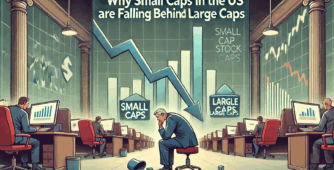In the world of computer hardware, two names have dominated the market for decades – Intel and Advanced Micro Devices (AMD). These companies have been at the forefront of innovation, powering the laptops and desktops that we use every day. But their journey has been anything but smooth. In this article, we will explore the fascinating history of these two tech giants and how their fortunes have fluctuated over time.
The Early Days: Intel Takes the Lead
Back in the day, if you were looking for a reliable and high-performance processor, Intel was the go-to brand. From the 1960s to the early 2000s, Intel was the market leader, with their processors powering the majority of computers worldwide. Their stock performance mirrored their dominance, with impressive returns over the decades.
On the other hand, AMD, the lesser-known competitor, struggled to gain a foothold in the market. Many considered them the “poor cousin” of Intel, with inferior products and limited market share. However, what happened next would change the course of their rivalry forever.
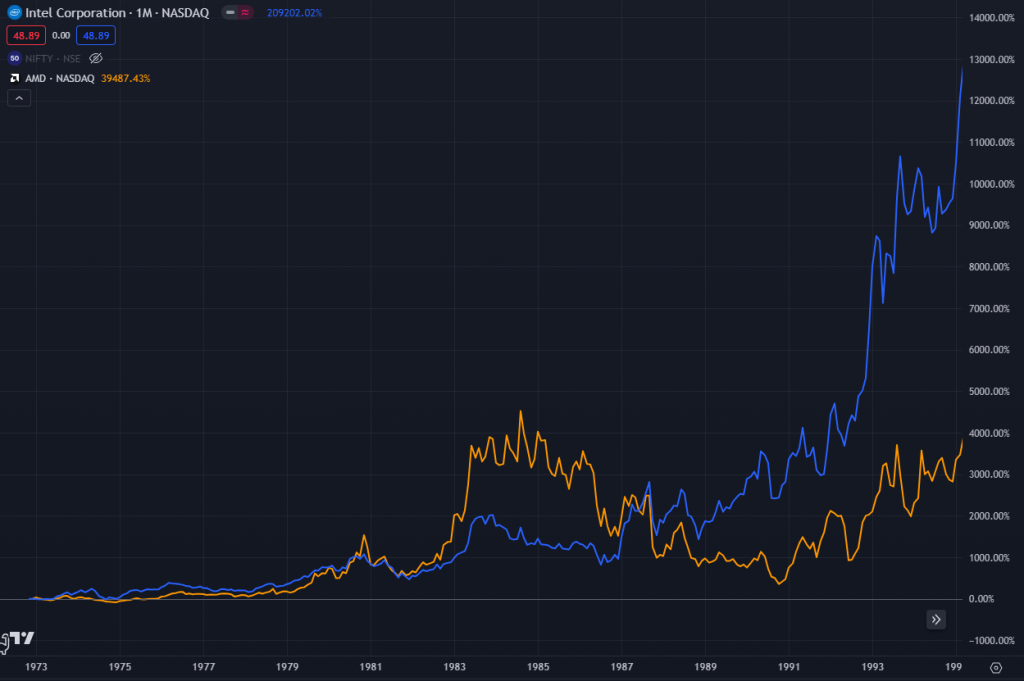
The Year 2000 and a Shift in Power
The year 2000 brought with it a significant turning point for both Intel and AMD. With the arrival of the new millennium, there were concerns about the Y2K bug and the potential collapse of computer systems. This led to a surge in processor demand, as companies and individuals rushed to upgrade their hardware to avoid potential disasters.
Intel, being the market leader, experienced a meteoric rise in stock prices during this period. In just five years, from 1995 to 2000, their stock price increased by a staggering 1800%. AMD, on the other hand, only saw a doubling in stock price during the same timeframe.
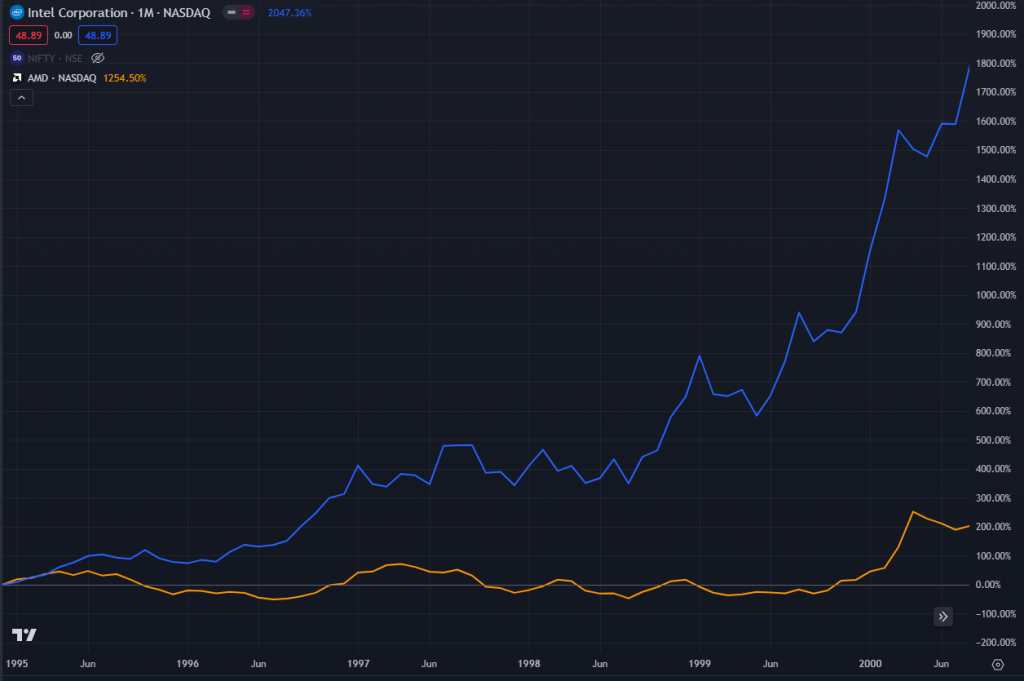
Intel’s Downfall and AMD’s Rise
While Intel basked in its success, the dot-com bubble burst, leading to a significant correction in the stock market. Intel’s stock price plummeted by 80% post-2000, and it took nearly nine years for the company to recover. This extended period of correction meant that Intel missed out on the subsequent market rally.
Meanwhile, AMD quietly started gaining traction. Their processors were more efficient and cost-effective, appealing to a growing segment of the market. After the correction, AMD’s stock price surged, experiencing an incredible 6868-fold increase in the last decade. In comparison, Intel could only achieve a four-fold increase in the same period.
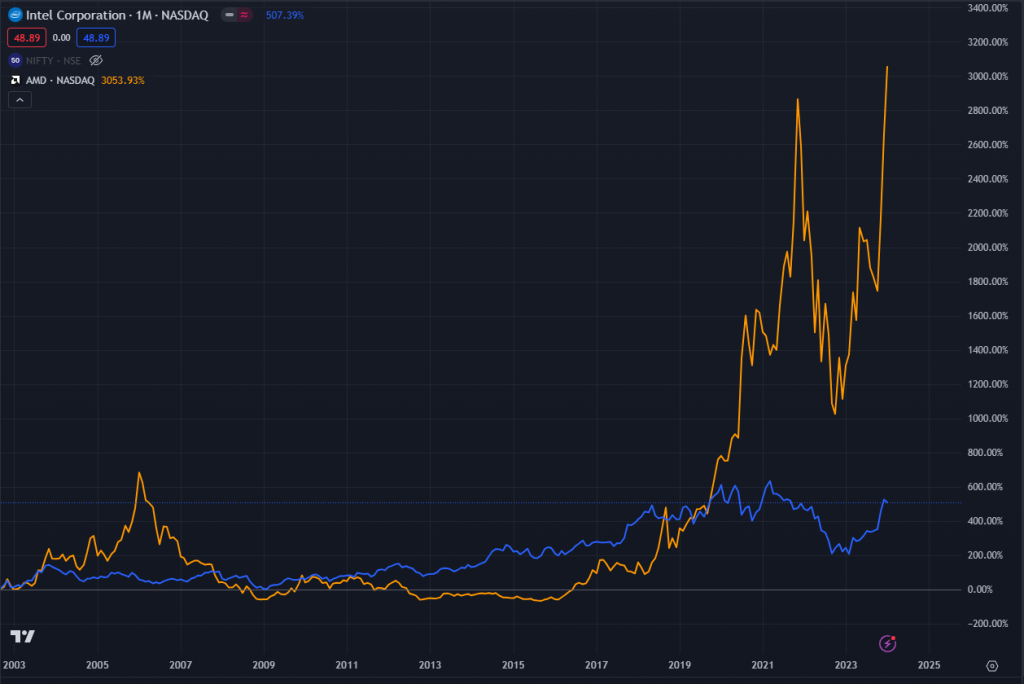
This unexpected twist in fortunes showcased how competing technologies can disrupt an industry. AMD, once considered the underdog, transformed itself into a formidable market leader, pushing Intel to re-evaluate its strategies.
The Present: A Shift in Market Dynamics
Fast forward to the present day, both Intel and AMD continue to be major players in the computer hardware industry. While Intel still holds a significant market share, AMD’s resurgence has given it a run for its money.
In fact, AMD has recently reached its all-time high in terms of stock price, reflecting the company’s strong performance and market demand. Intel, on the other hand, is still around 20% below its peak. Both companies are actively involved in developing cutting-edge technologies and pushing the boundaries of what is possible in the hardware space.
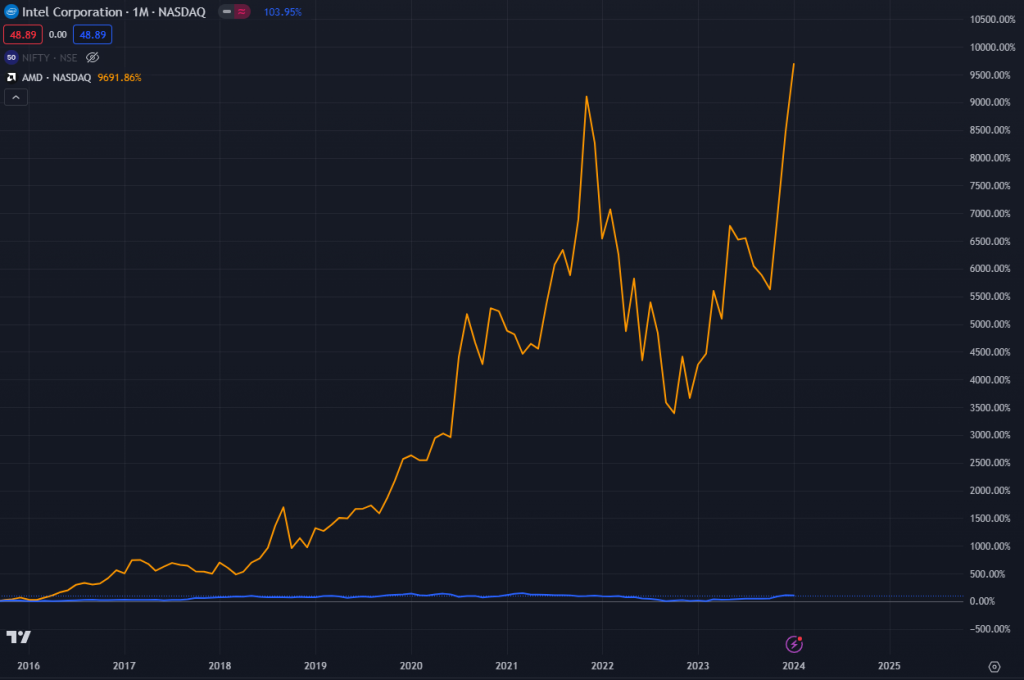
Lessons Learned: The Importance of Adaptability
The story of Intel and AMD teaches us valuable lessons in the world of investing and technology. It highlights the importance of adaptability and staying ahead of the curve. The best-known names in the industry may not always be the best performers, and vice versa. As an investor, it is crucial to evaluate the merits of each company based on their current performance and potential for growth.
Moreover, the rivalry between Intel and AMD shows that market dynamics can change rapidly. New technologies and innovations can disrupt even the most established players. Therefore, it is essential to keep a close eye on emerging trends and invest in companies that show promise and are poised to become future market leaders.

If you have any questions, please write to support@weekendinvesting.com





